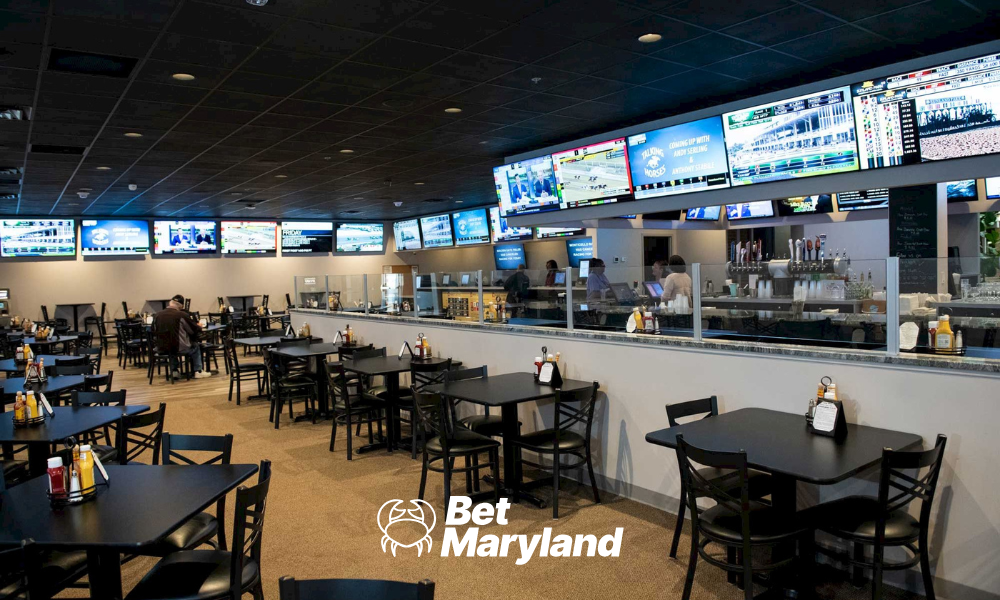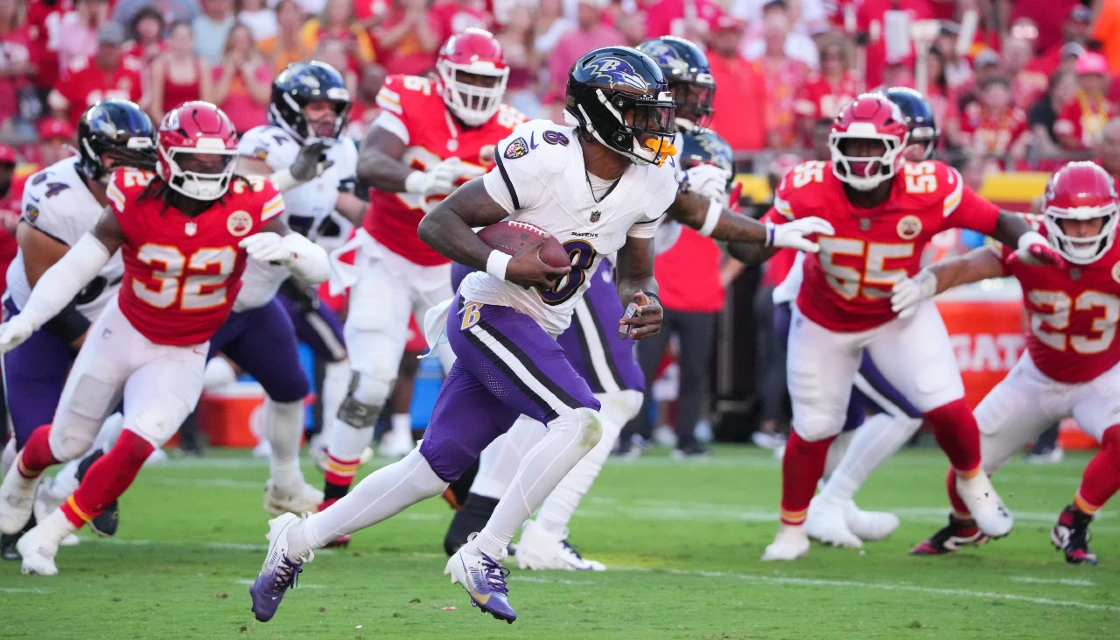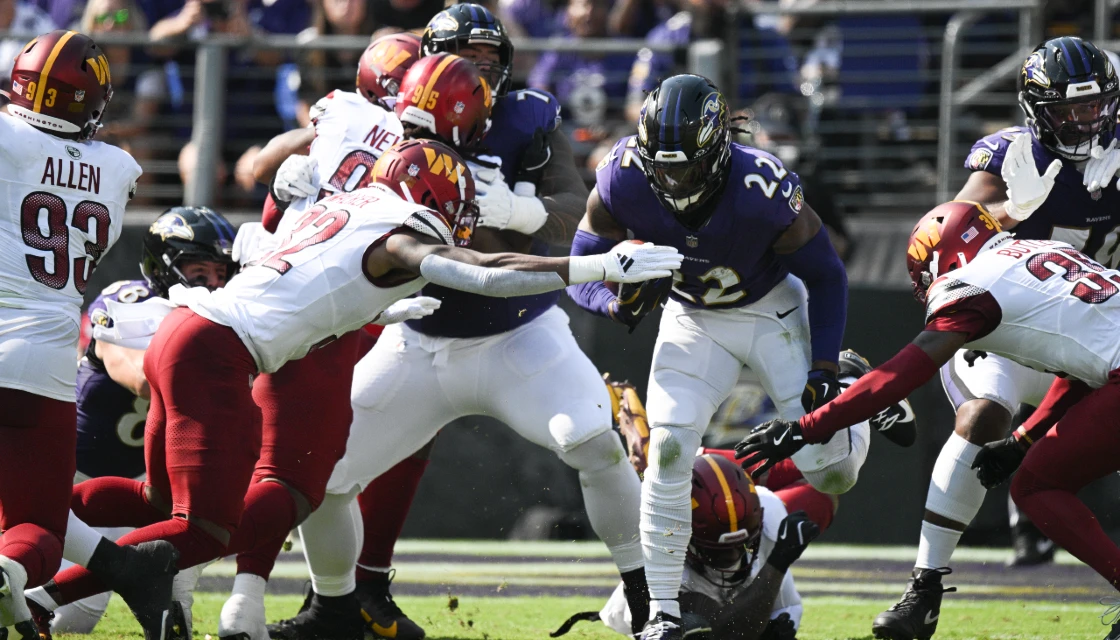DraftKings made news late last month when it announced it planned to purchase microbetting platform Simplebet. However, many in the sports betting industry were preparing for the move even before the press release hit inboxes and social media feeds.
The sale requires approvals from Maryland Lottery and Gaming and regulators in other states that have licensed both companies. The deal would give DraftKings – which offers DraftKings Maryland Sportsbook in the Old Line State – sole ownership of the New York-based business that provides microbetting services.
Microbetting is a segment of in-game betting that focuses on markets for specific outcomes within a game or contest. For example: When you see a sportsbook offer odds on whether the next pitch in a baseball game will be a ball or a strike. Or if the next shot in a basketball game will be a 3-pointer or layup.
DraftKings owns 15% of Simplebet, the result of a 2021 pact between the two companies. But Simplebet also provides microbetting services for such sports betting operators as Caesars Sportsbook, bet365 and Hard Rock Bet. It’s expected that those sportsbooks and others will need to get microbetting markets from other vendors. Sources have told BetMaryland that talks have been ongoing between sportsbooks and vendors for months in preparation for DraftKings’ acquisition.
BetMaryland.com, as part of our Maryland online sports betting coverage, recently spoke with leaders from two companies that offer microbetting services to get their thoughts on what DraftKings’ acquisition means for their businesses and others in the industry.
Microbetting Spurs MD Sportsbooks Engagement
Both Francesco Borgosano, CEO and co-founder of Huddle Tech, and Tomash Devenishek, CEO and founder of Kero Sports, say that microbetting represents about a fifth of the in-game handle for some U.S. sportsbooks. That share is higher in some sports, with Borgosano saying microbets represent as much as 30% of the in-game handle for college football.
Those percentages are expected to grow in the coming years with technological improvements. The two executives also see those wagers as a way to keep fans and bettors watching games.
“It is definitely clear that micros are a magnet for the next generation and boost entertainment value, unlike other online sports betting products,” Devenishek said. “Micros offer an engaging outlet for users waiting on their same-game parlay or pregame bets who might leave or not open the app once those are placed. Traditionally, that role was filled by casino games (where available), but now there’s a sportsbook product that provides a similar function, leading to greater margins but, more importantly, retention and engagement.”
Borgosano said increased microbetting activity “reflects a shift towards casinofication in sports betting,” with such bettors likely pursuing instant gratification through bets on the outcome of the next drive in a football game or at-bat in a baseball game.
“They prefer the fast-paced, casino-like nature of betting, where they can place wagers on quick, specific outcomes during the game rather than waiting for the final result,” Borgosano added.
Kero Ready To Enter U.S. Markets
Kero does not have any sportsbook partners in the U.S., but Devenishek said some operators began reaching out in the spring when news first broke regarding the possible Simplebet deal. However, the platform provider already works with NBA and NFL teams as well as the YES Network on free-to-play contests during games.
Devenishek noted that the average in-game FTP user session runs between 45 to 60 minutes. He added TikTok and Instagram have an average session time of an hour per day, meaning microbetting can produce similar engagement levels in just a fraction of the time.
“FTP is a strong proxy for real-money wagering from an engagement standpoint,” Devenishek said. “It allows us to learn whether specific contextual or generic micro markets resonate based on the behavior of thousands of fans in every game, and that helps us train better contextual and personalization algorithms.
Not only have free-play games helped Kero work with its wagering products, but Devenishek said those contests are also the best way for newcomers to sports betting to become acclimated with microbetting.
“New bettors should prioritize products that maximize entertainment value,” he said. “This industry wasn’t built on the premise of beating the house — over time, the house always wins. So, the best starting product is one that balances entertainment with a low risk of losing large sums.”
Kero has also honed its technology, according to Devenishek, to create “contextual” betting markets designed to offer wagering opportunities specifically tied to what’s happening in the game they’re watching. He said Kero’s algorithm may suggest a run-pass market for the next play during a football game after a team has run the ball three straight times because that’s what viewers are seeing unfold.
“Think of it as a color streak at a roulette table,” he added. “Regardless of whether you think that the streak will continue, an opinion about it has been formed in your mind because the streak itself is at the top of your mind.”
Huddle’s Relationships Position It For Growth
Last month, Huddle provided a license to Betr for its entire sports betting technology platform. That means Huddle will be powering not only Betr’s microbetting markets but also those for traditional pregame and in-game markets, as well as same-game parlays, futures and player props. Borgosano added that Huddle is already offering microbetting markets in Ohio and Virginia for Betr, which also has plans to launch a Maryland sports betting app soon.
Borgosano added that Huddle’s ability to offer a wide range of markets makes it stand out among competitors.
“Other providers that are focusing exclusively on offering micromarkets can limit a provider’s ability to seamlessly offer SGPs and other markets, making it more challenging to provide a comprehensive and versatile betting experience,” he explained.
Huddle also recently signed a distribution deal with Sportradar for its micromarkets, which Borgosano said will allow his company to provide “a fully functional solution” to operators in need of a microbetting platform.
It’s expected the Sportradar integration will be completed sometime next month.
“This move strategically positions Huddle to capitalize on the market demand, ensuring operators can smoothly transition to Huddle’s innovative platform,” he said.
Besides SportRadar, Huddle also has a partnership with Genius Sports, the NFL’s official betting partner. Because of that relationship, Huddle has access to the data capture technology Genius Sport has at all NFL stadiums and the real-time feeds it produces. Huddle uses that data for its pricing models, meaning it can offer markets more quickly than some competitors, Borgosano added.
He also said football is an “ideal” sport for microbetting opportunities.
“Football’s structure, with breaks between plays, quarters and drives, makes it more suitable for microbetting compared to sports like soccer,” Borgosano said. “In European sports, especially soccer, the rhythm of the game doesn’t lend itself as easily to micro markets, where the first 10 minutes of a match may not generate as much betting interest.”
Federal Bill Targets Microbetting
The increased opportunities for microbetting operators come at the same time some lawmakers want to see the markets banned in the U.S. This month, New York U.S. Rep. Paul Tonko unveiled his SAFE Bet Act, which would prohibit the use of artificial intelligence to create microbetting markets.
During a press conference with Connecticut U.S. Sen. Richard Blumenthal and other supporters, Tonko said that those who bet on such markets are 2.5 times more likely to meet the criteria for problem gambling behaviors.
“These practices are predatory and need to stop,” the congressman said.
Opponents of the bill counter that sports betting operators also use AI technology and other innovations to help protect players. In addition, if licensed sportsbooks can’t offer products many bettors want, such as microbets, then those customers will go elsewhere to get them.
“Instead of imposing unnecessary restrictions on legal, state-licensed sport betting operators, Congress should use its power to collaborate with states to shut down illegal offshore sportsbooks that brazenly defy federal law,” the iDevelopment and Economic Association, an online gaming industry trade group, said in a statement last week.
USA Today photo by Tommy Gilligan









